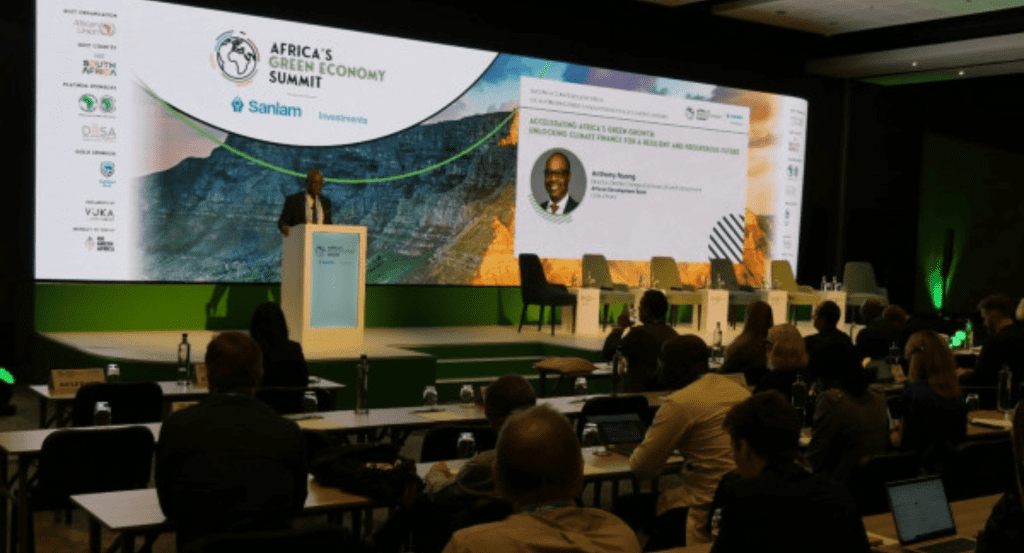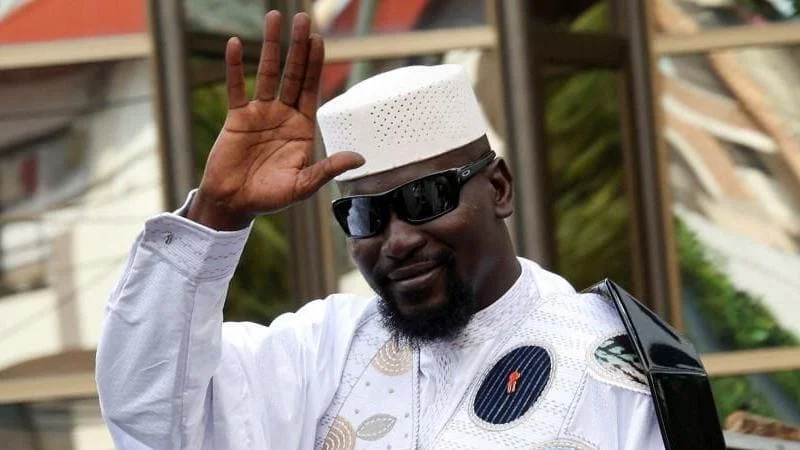The African Development Bank Group (AfDB) actively participated in the third edition of Africa’s Green Economy Summit (AGES), held in Cape Town, South Africa, from February 18 – 21, 2025. This annual event, hosted by the African Union, brought together policymakers, private sector leaders, and sustainability experts to discuss Africa’s green transition and the urgent need for increased climate finance.
Under the theme “Building a Climate Resilient Africa: Catalysing Investment and Innovation in the Green and Blue Economies,” discussions focused on five core areas:
- Climate finance
- Biodiversity and nature
- Green reforms
- Resilient cities
- Green industrialization
With Africa’s vast renewable energy potential and abundant critical minerals essential for global energy transitions, the continent is well-positioned to lead in sustainable economic growth. However, the increasing impacts of climate change emphasize the need for urgent resource mobilization.
READ ALLSO: Nigeria and Brazil Seal $1.1 Billion Green Imperative Project to Strengthen Food Security
Africa’s Climate Finance Gap: A Call for Increased Investment
Speaking at the opening ceremony, Dr. Anthony Nyong, Director of Climate Change and Green Growth at AfDB, emphasized Africa’s potential to drive the global shift towards a green economy. He stated:
“Africa has enormous opportunities to lead global efforts to transition to a green economy. To build a climate-resilient Africa, adaptation must be at the heart of our strategies.”
Despite the pressing need for climate adaptation, only 10% of global climate finance is allocated to it, with most funding directed toward mitigation efforts. Nyong urged for a tripling of Africa’s climate finance flows, emphasizing the importance of strategic partnerships to support this transformation.
Private Sector’s Role in Bridging Africa’s Climate Finance Gap
Highlighting the role of private investment, Barbara Buchner, Global Managing Director of Climate Policy Initiative, pointed out a critical shortfall:
- Africa’s climate finance needs far exceed current funding levels.
- Only 23% of required climate finance is being met.
- The private sector contributes just 18%, significantly lower than in other regions.
For Africa to achieve its climate resilience and green growth goals, mobilizing private sector investments is essential.
AfDB’s Commitment to Green Growth and Sustainable Development
As a platinum sponsor of AGES, the AfDB played a key role in discussions, demonstrating its leadership in Africa’s transition to a low-carbon economy. The bank’s Climate Change and Green Growth Framework (2021 – 2030) outlines strategic investments in:
- Renewable energy
- Critical minerals for clean technologies
- Climate-smart agriculture
- Green cities and infrastructure
According to Al Hamndou Dorsouma, Manager of Climate and Green Growth at AfDB:
“Driving green growth in Africa comes with challenges but also significant opportunities. AGES provides a platform to spotlight Africa as a land of green economic opportunities.”
Carbon Markets: A Key Driver for Climate Finance
On February 18, 2025, the AfDB hosted a Masterclass on Carbon Markets in Africa, exploring how carbon trading can provide new opportunities for project development. With global interest in carbon credits rising, stabilizing and expanding Africa’s carbon market could unlock additional climate financing.
Conclusion: A United Effort for a Climate-Resilient Africa
AGES 2025 reinforced the need for bold commitments and targeted investments to support Africa’s climate resilience. Through platforms like AGES, Africa can:
- Strengthen global partnerships
- Unlock sustainable funding
- Implement climate-smart policies
By embracing low-carbon, climate-resilient development, Africa has the potential to lead the world in green economic transformation while ensuring a sustainable future for both its people and the planet.























